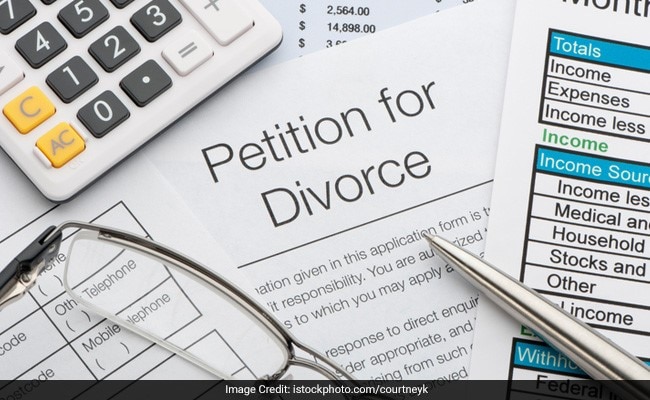What is a failed marriage? The one that ends in separation and divorce or that which continues despite – and sometimes because of – either or both partners breaking the covenant?
Let me first admit that the word ‘failed’ has been used here as a clickbait. As my second and current husband once said-when I was dealing with the gut-wrenching experience of my ‘failed’ first marriage-there is no Nobel Prize yet and likely will never be for accomplishing the great task of staying married. Marriage doesn’t merit signifiers of the success framework. The sooner we learn it, the better it is for everyone involved.
Canadian Prime Minister Justin Trudeau announced the end of his adult-18 years old-marriage with Sophie Gregoire Trudeau. His father Pierre Trudeau, former PM of Canada, also separated from his wife while in office. When such high-profile and seemingly ‘successful’ marriages end, they not only receive a disproportionate amount of attention but spawn a spate of comparisons.
Let’s have a “meaningful and difficult conversation” about marriage, instead. The traditional view of companionate marriage (to keep the discourse under control, it’s important to keep the “arranged” marriage out of its purview) is built on the primacy of promissory duty. When two people in love decide to get married, it is their promise of being together in good and bad times, while cherishing, loving, and honouring each other, which forms the bedrock of marriage. What does the separation of such individuals signify? At this point, let this be underscored that marriage of any kind ought to remain a private affair with only personal ethics governing it. No third person deserves a say in any marriage unless they are invited by one or both partners.
When a marriage ends, the partner that initiates the conversation often becomes an Oppenheimer-like figure-the destroyer of worlds. Accusations of broken promise(s) are not uncommon, selfish motives are found or conjured, but most importantly, it is the dereliction of duty that is debated. Even in the individualism-driven Western world, the hard line view on marriage doesn’t excuse, morally speaking, the rescinding of wedding vows.
In case of a unilateral separation or divorce, unhappiness caused to the non-consenting spouse or children is still a morally charged subject. In a no-fault divorce scenario, permissibility is often at odds with morality. Just because something is allowed doesn’t mean that one ought to do it. Like smoking on one’s own balcony.
What, then, happens to a duty to oneself to prevent one’s own unhappiness? Emmanuel Kant argued, and rather successfully, that unhappiness leads to vice. This and the adage that nothing pours out of an empty vessel hold truest in the case of marriage. Unhappiness need not be drastic or graphic or even visible. It is the invisible unhappiness of being that is the most corrosive, because rarely is it recognised and rarer still are the tools and mechanisms to cope with it. A marriage of unequal minds, however functional in familial, financial or fertility terms, is a good example of the breeding ground for such unhappiness.
Why, then, are people still hesitant in viewing marriage sans the aura of success and respectability? Some of the most liberal, radically evolved political minds practice this conservatism in their personal lives.
The answer, perhaps, is hidden within the layers of guilt and shame that have ossified with centuries of conditioning. In human evolutionary history, it is but a short period. The nature and form of marriage have evolved over time. Communication, internal and external, about its relation to happiness, is yet to find a language that goes beyond the victimhood vocabulary.
Marriage is often seen, especially in our part of the world, as the panacea to all sorts of problems ranging from financial to psychological. However, not even the staunchest supporters of the institution are able to unequivocally locate it within the trajectory of the human pursuit of happiness. To use Marx in marriage-though, he ruminated extensively about marriage, family et al in his own writings-the mechanical materialism of life often overpowers social relations between spouses. Marx also said, in a different context, “Our mutual value is for us the value of our mutual objects” and nothing defines better a merely duty-bound marriage that turns its back on individual fulfilment. One doesn’t have to be a Marxist, or even take Marx’s ideas at face value, to fathom the unbearable weight of a relationship-an arrangement-that one is expected to carry purely as a matter of either duty or habit. No meaningful superstructure can be erected on such a mechanical base.
Are ‘successful’ marriages successful only because there is a punitive aspect to their dissolution? While marrying, the partners agree to the legal default rules for the termination of their union. This is a problematic construct. What is a partnership actually worth if it needs such a regulatory framework? Does it not undermine agency, emotional and philosophical? Does it not turn marriage into a cold-blooded contract rather than a chosen, sanguine state of being? Does it not breed discontent and dishonesty?
Each marriage may have its unique set of rules. As long as they are equal and followed by both partners with equal sincerity, there is still logic to the institution. When partners engage in clandestine sexual peccadilloes under the veneer of a ‘successful’ marriage or bulldoze their value systems through the family, what is the success metric we are looking at?
When the famous marry or separate, there may be a subliminal internalising of attached values by regular people. Marriage, with its essential linkages with sexual regulations, is an undemocratic space to start with. It is not difficult to get lost in its labyrinth and be devoid of jouissance-the one thing that makes us human.
(Nishtha Gautam is a Delhi-based author and academic.)
Disclaimer: These are the personal opinions of the author.
Featured Video Of The Day
Complainant Purnesh Modi On Supreme Court Verdict In Rahul Gandhi Defamation Case







